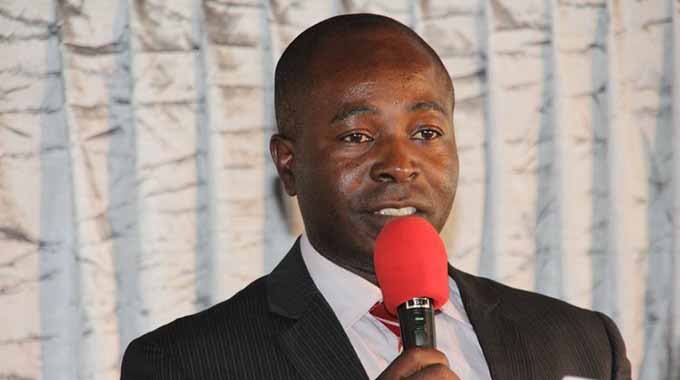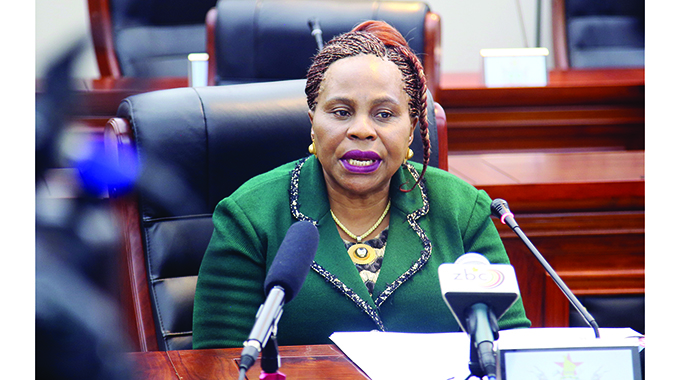EDITORIAL COMMENT: Extra care needed to reduce Covid infections

A huge sigh of relief went up across Zimbabwe on Wednesday night as the word spread that Cabinet had agreed that schools could quickly re-open for the third term, the examination classes on Monday next week and the rest a week later on September 6.
The step was taken for three good reasons. The infection rates for the third Covid-19 wave are continuing to fall, the Ministry of Primary and Secondary Education has been making sure with its advice and help that all schools are equipped and prepared to offer the safest possible learning environment, and education is one of those critical priorities that need to be moved to the front of the queue when some relaxation in a lockdown is possible.
The re-opening is still going to require a great deal of care by schools, teachers, parents and children. While the third wave continues to slowly recede, infection rates are still higher than they were when the first term ended.
All the medical experts are saying is that they are now low enough for schools to re-open if all the other safeguards are in place and rigidly enforced.
This is possible, and fairly easy to enforce, on the school premises. Many school rules significantly less important than the health precautions have been enforced for decades so the systems are there.
The problem will come when children are going to and from school and perhaps when they are at home.
While boarders can be rigidly controlled most schoolchildren live at home so parents and others are going to have to play their part to ensure that masks are worn and social distancing is followed while walking to school or sitting in a bus.
The school calendar is still being modified in the Education Ministry, but we assume that there is a very good chance we will just have two terms this year, with no further vacations, or if the authorities find it necessary to have a break this will be exceptionally short.
Too much time has already been lost in the second and third waves.
While efforts were made to get online lessons functioning, the number of families that do not have suitable devices to reach these is high, and many children have missed a lot of schooling.
The Education Ministry had already modified the curriculum to include just the absolutely essential material so there is a good chance that there are enough days left this year to allow most children to catch up.
A second factor, again discussed in the Cabinet meeting, was the decision that vaccination could now be extended to most teenagers, the 14 to 17-year-olds. This is again on scientific advice and is already the policy in a growing number of countries, mostly developed countries.
But it does now mean that most secondary school pupils can be vaccinated and there will be a lot of parents who will feel a great deal happier if they know their children have had their jabs.
While they can line up at clinics and hospitals, and if there is no alternative parents will obviously take their children down to the nearest centre, the opportunity now opens for teams to be deployed to high schools.
This is nothing new. Every now and then there has been a minor, but dangerous outbreak of a childhood illness and the Ministry of Health and Child Care wants all primary schoolchildren given a booster shot just to make sure and kill the infection chains. The teams then go round all schools, public and private, and the head lines up the classes one by one and marches them in.
The voluntary nature of vaccination is preserved by allowing parents and guardians to opt out, with silence implying consent, but it is rare for a child to be held back from the queue by a parent.
It would certainly make life a bit easier and seems essential for boarding schools. Day pupils can always go to a clinic in an afternoon or over the weekend.
We assume that since teachers were given a vaccination priority quite early in the national programme that all or almost all have now taken advantage of that and had both jabs. This must be one of the measures that make schools as safe as possible.
The other relaxation was an interesting one. Restaurants are now in the same group as churches, allowed to serve meals to sit-in diners who are fully vaccinated, that is have had both jabs.
No announcement has been made yet on opening hours, so presumably restaurants can only deal with the lunch trade and morning coffees, but the relaxation may well help many to survive as they wait for better days.
This move must mean that the earlier relaxation for churches was largely successful and that the churches did co-operate with the Government and have been applying the relaxation rules rigidly, in letter and spirit.
Now restaurant owners have the same responsibility. If they embrace the vaccination requirements then it will be easier for further relaxations, both for them and for other sectors.
The rule changes for churches, restaurants and Victoria Falls City also show the way the Government is thinking and moving as it eases the lockdown.
The fully vaccinated are going to be able to move towards normality a lot faster than those who have not taken up the offer.
In a swathe of countries now spectators can attend sports events, spaced out and wearing masks, but must show their vaccination cards at the gate, and some countries have been allowing limited access to live shows under the same rules.
The Government has been battling to keep the economy open, and its level four rules did that while still pushing back the third wave, and has now taken a major plunge to reopen schools.
The extras, the churches and restaurants, provide a chance to see how people are willing to respond to a measured relaxation in less essential parts of everyday life.
The more people who join the vaccination queues and the willingness of the general population to follow the health rules and regulations, regardless of their vaccination status, the easier and quicker will be the journey to normality.
So everyone directly or indirectly involved in education must make the new relaxation work, and everyone must make the careful opening of social and religious activity work.










Comments